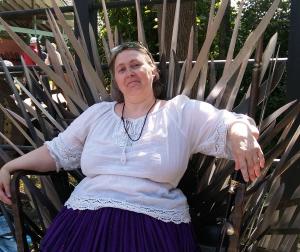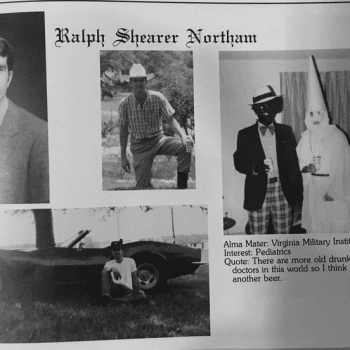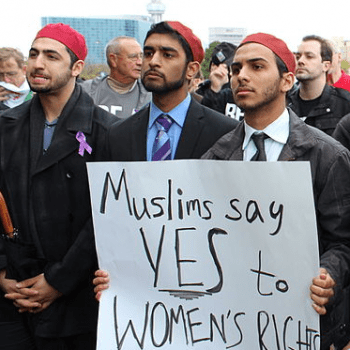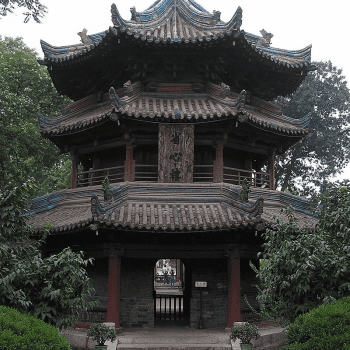
This month the writers of the Patheos Muslim Channel are opening up about their feelings on the hot take, a quick response to a current event, political debate or issues of the moment. I have to say, I love ’em!
The Pros
Most bloggers and opinion writers thrive on the hot take. Weighing in on issues that are important, timely and have captured the interest of the general public not only gives your writing more relevance, but also allows you to capture the momentum of a topic and grow your audience. Readers are interested in hearing new takes and different angles on the issue and are looking for people talking about it.
Personally, I’m enthralled by the swirl of discussion and debate around hot topics. I enjoy seeing what others have to say. And I love being part of a discussion that’s timely and pertinent to the issues that are important to me and my family, friends, neighborhood, state, country, and the world as a whole. I like reading different opinions and exploring new ways of looking at an issue. I often come away from the conversation with more depth to my opinion and a better understanding of the issues at hand.
The Woes
Of course, the biggest downfall of the hot take is that it’s quickly written. As a result, a writer often looks back and says, “Oh, I didn’t explain that point as well as I could have” or “I wish I had addressed this angle too.” You can always go back and edit, add extra content, or write a second column to round out your thoughts, but these add-ons will never have the same impact as that first foray into the subject.
Another pitfall when you’re rushing to get something out is it’s easy to skimp on research. It’s tempting to grab some facts off Wikipedia or a quick google search without really vetting the source. I think all of us have been bitten by that bug once or twice. One of the great benefits of being a seasoned writer, is I have a stable of well-reasoned opinions and know where to find Qur’anic passages, hadith and reliable research to back them up. It makes writing a hot take a lot easier. On the other hand, as a writer whose addressed a lot of the same topics over and over, it sometimes starts to feel like you’re beating the proverbial dead horse.
The Oh Nos!
Hot takes have gotten a bit of a bad name. Bad writing and over-inflated egos are to blame for that. We’ve all read piece that not only suffer from bad research, but also fall prey to shallow thinking, bad logic, sensationalism, and simplistic moralizing. And then there are the pundits who take any topic in the public eye and use it focus attention on themselves. These folks and their techniques give the hot take a black eye and they deserve the scorn that has fallen to them. But that doesn’t take away from the fact that we all need and want thoughtful, timely writing on topics of the moment.
The No-Gos
There is one hot take that I just won’t write any more. It’s the “Yes, there was this terror incident, but the vast majority of Muslims don’t condone terrorism” column. After 9-11, it was a topic we needed to address. Not just for the general public, but for ourselves.
9-11 was a turning point in history. The scale, the number of lives lost, the months of planning, the depth of deception, hatred and the callous disregard for civilian life was horrific and unlike anything any one could recall. Non-Muslims needed the reassurance that the vast majority of Muslims were as horrified as they were. And we needed to reaffirm to ourselves who we are as individuals and as a community, especially those of us who felt attacked as both Americans and Muslims.
The time for that discussion has come and gone. Continuing to repeat “we aren’t all terrorists” isn’t effective or needed anymore. I regularly challenge the notion that Muslims are terrorists and terrorists are Muslims, but I’m not going to pull out that same refrain every time there is an incident.
For one, it should be obvious by now to anyone who has been paying attention, or who just stops to think about it. For two, it’s been said and is being said, over and over and over again every time any Muslim does anything wrong. For three, the people who adhere to that belief aren’t going to take my word for it anyway. For four, I think that in the moment of a tragedy, people are less likely to be able to hear that message than they will be able to hear it at other times. Most importantly, I feel that when we rush to say, “We’re not all like that,” we are actually reinforcing the stereotype rather than combating it. The “we’re mostly good” line leads people to say, “yeah, but there are so many who are rotten.”
Maybe this is a sign that I’m getting a little wiser now that I’m in my fifties. Or maybe it’s just I’m getting old and grumpy. Or just maybe, hopefully, I’m ready to take to heart the verses that “Each soul is responsible for its own actions; no soul will bear the burden of another.” (see Qur’an 6:164, 35:18, and 53:38)












